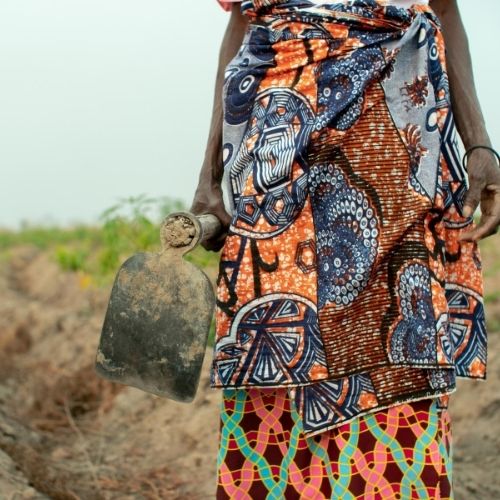Addressing Food Insecurity: Global Aid in the Face of Covid-19
August 14, 2020 | Ed Scharringa

Food insecurity has been a serious issue in Canada for decades, and the pandemic has made it worse. According to a May survey from Statistics Canada, almost one in seven Canadians reported experiencing food insecurity in the past 30 days.
The picture is even worse globally. According to a United Nations report released in May, 690 million people were hungry and undernourished in 2019. It’s difficult to predict the effects of COVID-19, but estimates suggest the number of people experiencing acute food insecurity will nearly double, from 135 million last year to 265 million.
Despite these depressing numbers, there are some rays of hope. Agricultural productivity worldwide is more than capable of meeting the need. Gilbert F. Houngbo, president of the International Fund for Agriculture (IFAD), argues that “the problem is not production. Persistent and chronic hunger is the result of poverty, inequality, conflict, poor governance and marginalization of the most vulnerable.” These inequities have been exacerbated by COVID-19, particularly in developing countries.
Back at home, many Canadians are thinking about how to move agri-food policy forward for the sake of our global neighbours.
Laura Rance of Glacier Farm Media, recently wrote a piece on Canada’s role as a food exporting nation. She cautions that government should resist the temptation to reduce our global development contributions in order to get our “own financial house in order.” She cites both the humanitarian and economic aspects of ensuring that Canada can continue to feed the world.
A report from a coalition of Canadian NGOs, including the Canadian Foodgrains Bank, also calls for an increase to aid, particularly in the face of COVID-19 challenges. The report offers recommendations to government, including that “Canada should contribute its fair share to international assistance, by increasing its aid budget. This would permit increased funding for inclusive and resilient agriculture, climate change adaptation and mitigation, and other important sectors.”
The CFFO would like to add our voice to those who are calling for more, not less, Canadian agricultural involvement in the global pandemic recovery. While we work to overcome our own setbacks, we cannot lose sight of the ways Canada can be a force for good in building better food systems and alleviating the scourge of hunger around the world.
Ed Scharringa is Board of Directors President of the Christian Farmers Federation of Ontario. The CFFO Commentary represents the opinions of the writer and does not necessarily represent CFFO policy. The CFFO Commentary is heard weekly on CFCO Chatham, CKXS Chatham, and CKNX Wingham. It is also archived on the CFFO website, www.christianfarmers.org.
 Skip to main content
Skip to main content